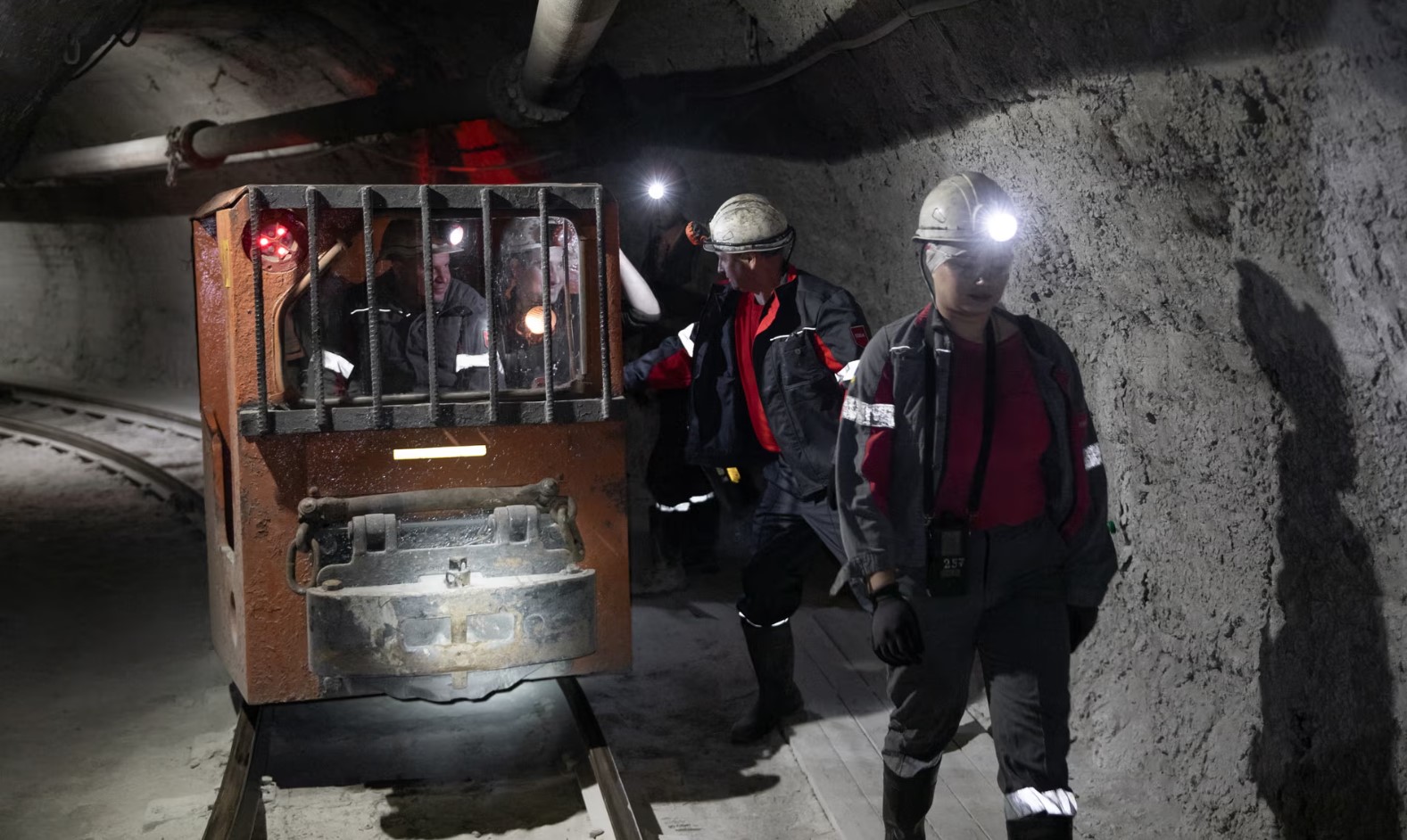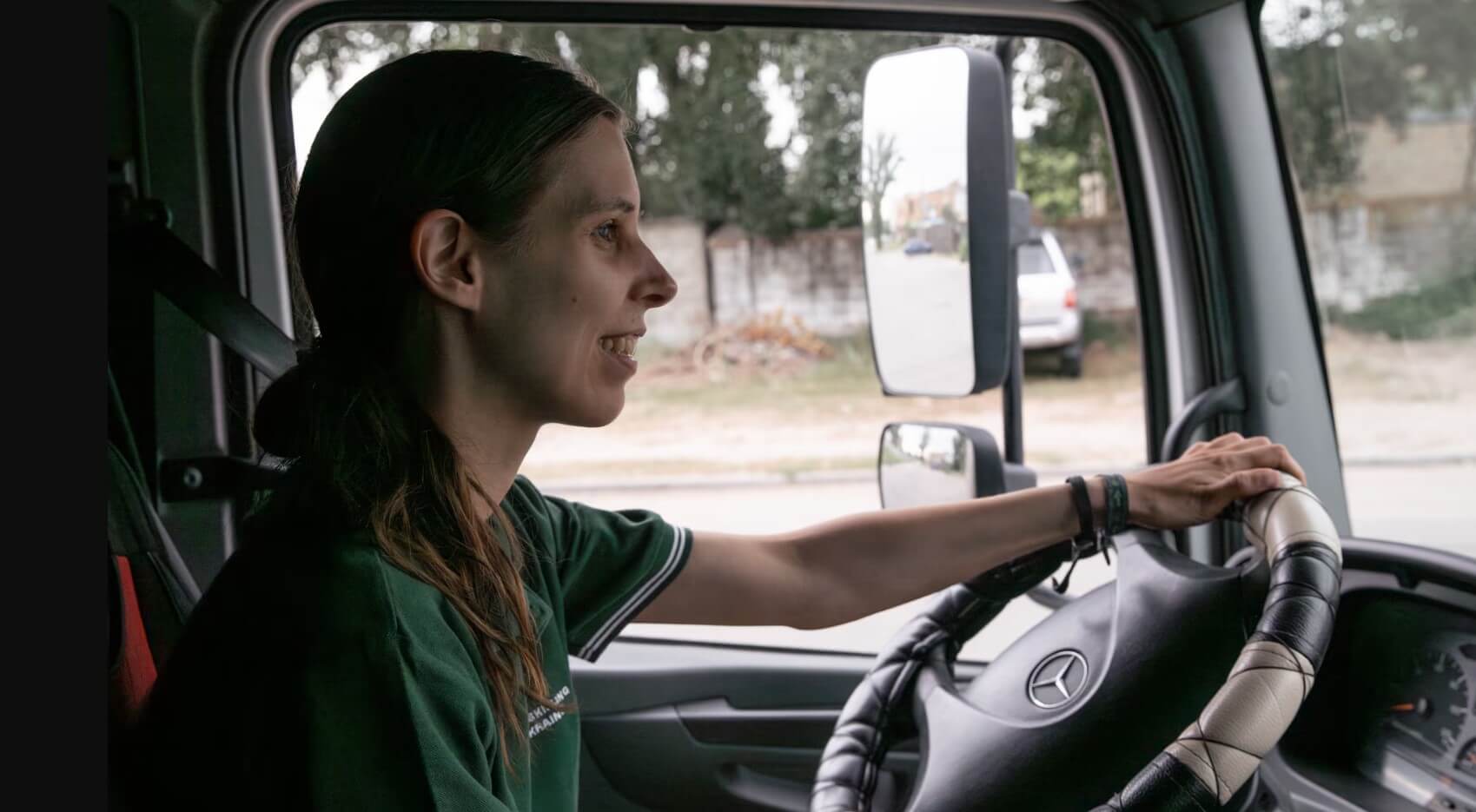Standing in front of a Soviet-era industrial elevator, ready to descend 2,000ft for a gruelling six-hour shift at a coalmine in eastern Ukraine, Ludmyla Bashkatova looked unfazed.
The last thing she saw before stepping into the metal cage and plunging into darkness with dozens of other miners was a towering sign urging workers to take care. “You are awaited at home,” it read, a stark reminder of the perils working at a frontline mine in the city of Pokrovsk.
“At first, going underground was scary, but you soon get used to it,” said Bashkatova, 49, as workers emerging from the night shift, their faces darkened by coal dust, passed by her.
The Russian invasion, which saw hundreds of thousands of Ukrainian men serve at the front, has pushed women like Bashkatova down into the mines, taking up traditionally male jobs to keep the country’s economy going.
Nearly three-quarters of Ukrainian employers have complained of workforce shortages, according to a recent study, and in Kyiv intervals between metro trains have increased due to a worker shortage, with up to 10% of the workforce mobilised. Nationwide, there is a 30% deficiency in bus drivers.
A former village school teacher in the eastern Donetsk region, Bashkatova lost her job last year when relentless Russian shelling forced her pupils to turn to online schooling.
While scrolling online, she saw an ad on Facebook from Ukraine’s largest steelmaker, Metinvest, for a job at the Pokrovsk mine, seeking workers to operate machines underground.
“The pay is good and stable,” she said, “which is quite rare these days.”
“I was a teacher but now I am a student again. It is an interesting process,” Bashkatova said, adding that she had a few weeks left of training before she could operate the machinery unsupervised.
To enable women to work underground, the Ukrainian government lifted a law that had previously prohibited women from working in “harmful or dangerous” conditions.
Some have taken the opportunity with open hands as jobs in the battle-ravished region dried up.
Amid the rumble of rail carts and hum of machinery in the dark and dusty labyrinthine network of tunnels, Maryna Vikhreva, 50, stood alongside a group of male workers inside the mine.
Having spent three decades working at a mine above ground sorting dry coal, she welcomed the opportunity to acquire the profession of an underground machine operator and work underground.
Her salary had doubled to 19,000 hryvnias (£360), and with the influx of women, a bond of camaraderie had formed. “I think it’s great more women join. The girls are supporting each other,” Vikhreva said.
She added that her female friends were initially surprised when she told them about her job, but have since inquired about available positions.
Ukraine has the world’s sixth-largest coal reserve, with 90% of it located in the Donbas region, where mining has long been the lifeline for many towns and cities.
Nearly everyone at the mine in Pokrovsk, a city with a prewar population of about 61,000, has a relative who was fighting in the ranks of the armed forces of Ukraine to defend the country.

Violetta Loevska, 21, who recently started working at the mine measuring methane levels, said she saw it as her “duty” to keep it operating, especially since her uncle who worked at the mine had been sent to the front.
“Everyone understands that there just aren’t enough men left. If we don’t work here, who will?” she said as she walked down a tunnel.
Down in the mine, Loevska stressed, gender did not matter, dismissing the notion of lingering stigma surrounding taking on traditionally male roles.
“I knew very well what I was signing up for. Women can do the job just as well as men. All that matters is keeping other miners safe.”
Blue-collar industries heavily dominated by sturdy working-age men, such as mining, transport and construction are disproportionately affected by mobilisation. These vital sectors are expected to face further workforce depletion after president Volodymyr Zelenskiy’s decision to lower the conscription age to 25.
But in the country’s east, shortages are especially acute, with many families fleeing abroad or to the relative safety of western Ukraine.
Since the start of the war, 915 out of 7,493 male workers at Metinvest’s Pokrovsk mine have joined the armed forces, while others have left the region, said Serhiy Stepanenko, the head of human resources and social affairs at Metinvest Pokrovske Coal.
Stepanenko said that about 30 women have so far taken up jobs underground, while some women have started working in traditionally male-dominated roles in logistics and transportation.
But he said many of the most physically demanding positions would remain closed off for women. “The worker’s deficit is problematic and female employment won’t fix it,” Stepanenko said, adding that the mine has been forced to change the production outlook this year based on the available personnel.

Beyond the numerous usual hazards and long-term health risks of working in a Soviet-era coalmine – an industry plagued by deadly accidents – miners in Pokrovsk also face the threat of constant Russian bombardment. The mine is located just 15 miles from the battlefield.
Three days after the Guardian descended into the Pokrovsk mine, Russia shelled another site in the nearby city of Selydove, setting several production facilities on fire. The attack cut electricity at the mine, trapping 53 miners for hours before they were evacuated.
“Of course we worry about the fighting. All we can do is follow the safety protocols as best as we can,” said Loevska.
But the shortage of men is felt far beyond the frontlines, where the constant noise of rocket alarms and artillery shells has become a fixture in daily life.
To tackle some of these challenges, the Ukrainian government and independent organisations have set up fast-track retraining programmes for female workers across the country.
On a recent morning on the outskirts of Kyiv, a group of women gathered for a truck driving course organised by the NGO Reskilling.
“Truck driving was traditionally a male profession, but I have always wanted to experience what it’s like to be behind the wheel of such a powerful machine,” said Valentyna Kaistreno, who lived in Mariupol before Russia occupied the city, as she stepped outside a giant truck.
Kaistreno noted that for a long time, women were expected to stay at home and take care of their children.
“But now, the situation in the country has changed, and attitudes are evolving too.”
